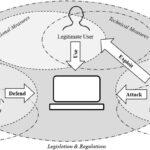In the fast-paced and often stressful environment of healthcare, professionals dedicate their lives to the well-being of others, frequently at the expense of their own financial health. Yet, understanding and managing personal finance is crucial for healthcare workers, as it ensures their ability to serve without the added stress of financial instability. This article aims to provide essential financial advice tailored specifically for those in the healthcare sector, focusing on practical steps to achieve financial well-being and security.
Understanding Your Financial Health
The first step towards financial well-being is understanding where you stand. This involves creating a detailed budget, tracking your spending, and identifying areas where you can cut costs. Healthcare workers often face unique financial challenges, including irregular work hours and unexpected expenses. By maintaining a clear picture of your financial situation, you can make informed decisions that enhance your financial stability.
Emergency Fund: Your Financial Safety Net
One of the pillars of financial well-being is having an emergency fund. This fund acts as a buffer against unexpected expenses, such as medical emergencies or sudden loss of income. For healthcare workers, who may encounter occupational hazards or job-related uncertainties, having an emergency fund is even more critical. Experts recommend saving at least three to six months’ worth of living expenses in an easily accessible account.
Investing in Your Future: Retirement Planning
Retirement planning is another essential aspect of your financial well-being. With many healthcare workers having access to pension schemes, it’s important to understand how these work and the benefits they offer. Additionally, consider contributing to a personal pension or an Individual Savings Account (ISA) to supplement your retirement income. Starting early and contributing regularly can significantly impact your financial security in later life.
Managing Debt Wisely
Debt management is a critical skill for maintaining financial health. High-interest debts, such as credit card balances, should be prioritized for repayment. For healthcare workers with student loans, exploring repayment options based on income or seeking loan forgiveness programs may offer relief. Additionally, it’s essential to avoid accumulating new debts by living within your means and saving for larger purchases.
The Role of Insurance in Financial Well-being
Insurance plays a vital role in protecting your financial well-being. Health, life, and disability insurance can safeguard you and your family from the financial implications of unexpected events. Given the nature of healthcare work, having adequate coverage is indispensable. Review your insurance policies annually to ensure they meet your current needs and adjust them as necessary.
Continuing Education and Professional Development
Investing in your professional development is an investment in your financial future. Continuing education and additional certifications can open doors to higher-paying positions and specialized fields within healthcare. Many employers offer tuition reimbursement or professional development grants, so take advantage of these opportunities to enhance your skills and advance your career.
Exploring Additional Financial Resources
Loans for NHS staff, exploring additional financial resources can provide further support in achieving financial well-being. Among these resources, specific financial products tailored to healthcare professionals, including loans and mortgages with favorable terms, can be particularly beneficial. Such offerings recognize the vital role healthcare workers play and provide them with the means to manage their finances more effectively, even under challenging circumstances. It’s advisable to research and consider these options carefully to determine their suitability for your financial situation.
Balancing Work and Life
Finally, achieving financial well-being also involves finding a balance between work and life. Healthcare workers often face burnout due to the demanding nature of their jobs. Taking time for yourself, pursuing hobbies, and spending time with loved ones can improve your quality of life and, by extension, your financial decisions. A balanced life allows for clearer thinking and better financial planning.
Conclusion
Financial well-being is a critical aspect of living a balanced and fulfilling life, especially for those in the demanding field of healthcare. By understanding your financial health, establishing an emergency fund, planning for retirement, managing debt, ensuring adequate insurance coverage, investing in professional development, and exploring additional financial resources, healthcare workers can achieve a sense of financial security and focus on what they do best: caring for others. Remember, taking care of your financial health is not just about securing your future; it’s about enjoying your present without the burden of financial stress.


